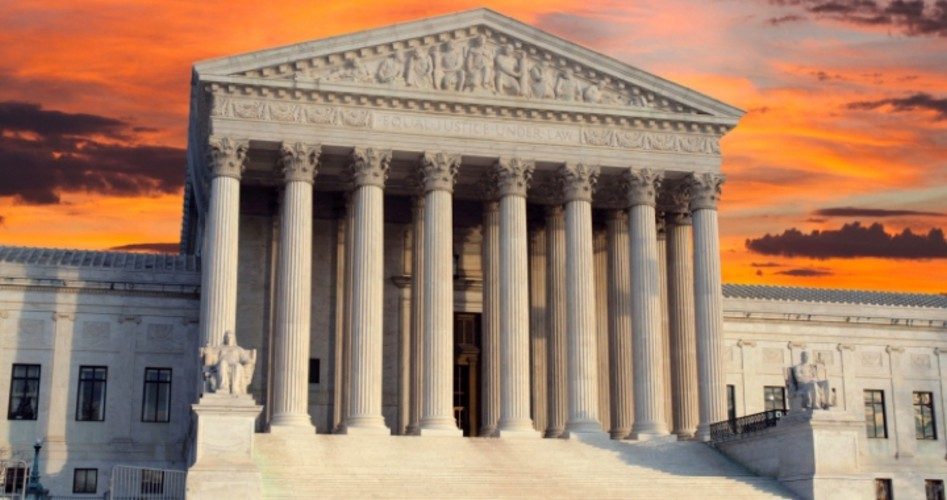
The U.S. Supreme has agreed to hear a pair of cases that challenge the federal government’s authority to force business owners morally opposed to abortion and contraception to provide contraceptives — including those that can cause abortion — to their employees. The most high-profile of the cases is the one filed by the Green family, owners of Hobby Lobby and its sister company Mardel. The other case involves the pro-life Mennonite owners of the Pennsylvania-based Conestoga Wood Specialties. In both cases the companies face millions of dollars in fines for refusing to make available abortion-inducing contraceptive drugs to their employees — one of the requirements of the “Affordable Care Act” now being imposed by the Obama administration.
White House spokesman Jay Carney told reporters that Obama administration officials “believe this requirement is lawful and essential to women’s health and are confident the Supreme Court will agree.”
By contrast, Kyle Duncan, general counsel of the Becket Fund for Religious Liberty, which is representing the Green family and Hobby Lobby/Mardel, expressed confidence that the High Court would rule for religious liberty, allowing his clients — and other religious-minded business owners — to refuse ObamaCare’s notorious contraception mandate. “This is a major step for the Greens and their family businesses in an important fight for Americans’ religious liberty,” said Duncan. “We are hopeful that the Supreme Court will clarify once and for all that religious freedom in our country should be protected for family business owners like the Greens.”
In September 2012 Hobby Lobby/Mardel’s CEO, David Green, filed a lawsuit to halt implementation of the mandate. Two-months later, a two-judge panel of the 10th Circuit U.S. Court of Appeals rejected the company’s request for a temporary injunction against the mandate as litigation in the case proceeded. That ruling prompted Green to announce that his companies, which have a combined total of over 14,000 employees, would defy the mandate, an action that could cost them an estimated $1.3 million in federal fines per day. “The government is forcing us to choose between following our faith and following the law,” explained Green. “I say that’s a choice no American and no American business should have to make.”
While Hobby Lobby’s owners have emphasized that they have no problem with offering their employees contraceptives as part of their health coverage, they have refused to spring for the Plan B-type abortifacient drugs, which can induce abortion in pregnant women. Duncan said that the Hobby Lobby/Mardel group would “continue to provide health insurance to all qualified employees. To remain true to their faith, it is not their intention, as a company, to pay for abortion-inducing drugs.”
David Green said that he and his family are encouraged by the Supreme Court’s decision to hear their case. “This legal challenge has always remained about one thing and one thing only: the right of our family businesses to live out our sincere and deeply held religious convictions as guaranteed by the law and the Constitution,” he said.
A number of conservative legal advocacy groups have provided legal briefs in defense of religious liberty in the Hobby Lobby and Conestoga Wood Specialties cases, including Liberty Counsel. That group’s founder and chairman, Matt Staver, said that the two cases are causing many Americans to wake up to the fact that, contrary to what the White House is pressing, “Obamacare is far from a done deal. The courts are just now beginning to respond to the many constitutional challenges, including the constitutionality of the employer mandate and also the free exercise of religion that applies to individuals.”
Staver predicted that ObamaCare, “the biggest funding of abortion in history, is on a collision course with the sincerely held religious beliefs of many individuals and businesses. The HHS mandate presents a classic conflict with the free exercise of religion. I think it is apparent that the Obamacare abortion mandate will be struck down because it violates the free exercise of religion.”
Similarly, Russell Moore of the Southern Baptist Convention’s Ethics and Religious Liberty Commission, which offered a friend-of-the-court brief in the Hobby Lobby case, called the pending Supreme Court ruling “the most important religious liberty question in recent years. What’s at stake in this case is whether or not the Constitution guarantees the free exercise of religion.”
Moore said that Christian Americans “cannot accept the theology lesson that the government has sought to teach us, that religion is merely a matter of what happens during the scheduled times of our services and is left there in the foyer during the rest of the week. Our religious convictions aren’t reduced to mere opinions we hide in our heart and in our hymns. Our religious convictions inform the way we live. I pray the Supreme Court recognizes what the founders of this country saw, that religious liberty isn’t a gift handed to us by Uncle Caesar. Religious liberty is given to us by God and is inalienable.”
The case, Sebelius v. Hobby Lobby Stores, Inc., is scheduled to be argued and decided before the end of the Supreme Court’s term in June 2014. The Becket Fund noted that “there are currently 84 lawsuits challenging the unconstitutional [contraception] mandate,” and how the High Court rules on the Hobby Lobby case will no doubt impact many of the other cases.



